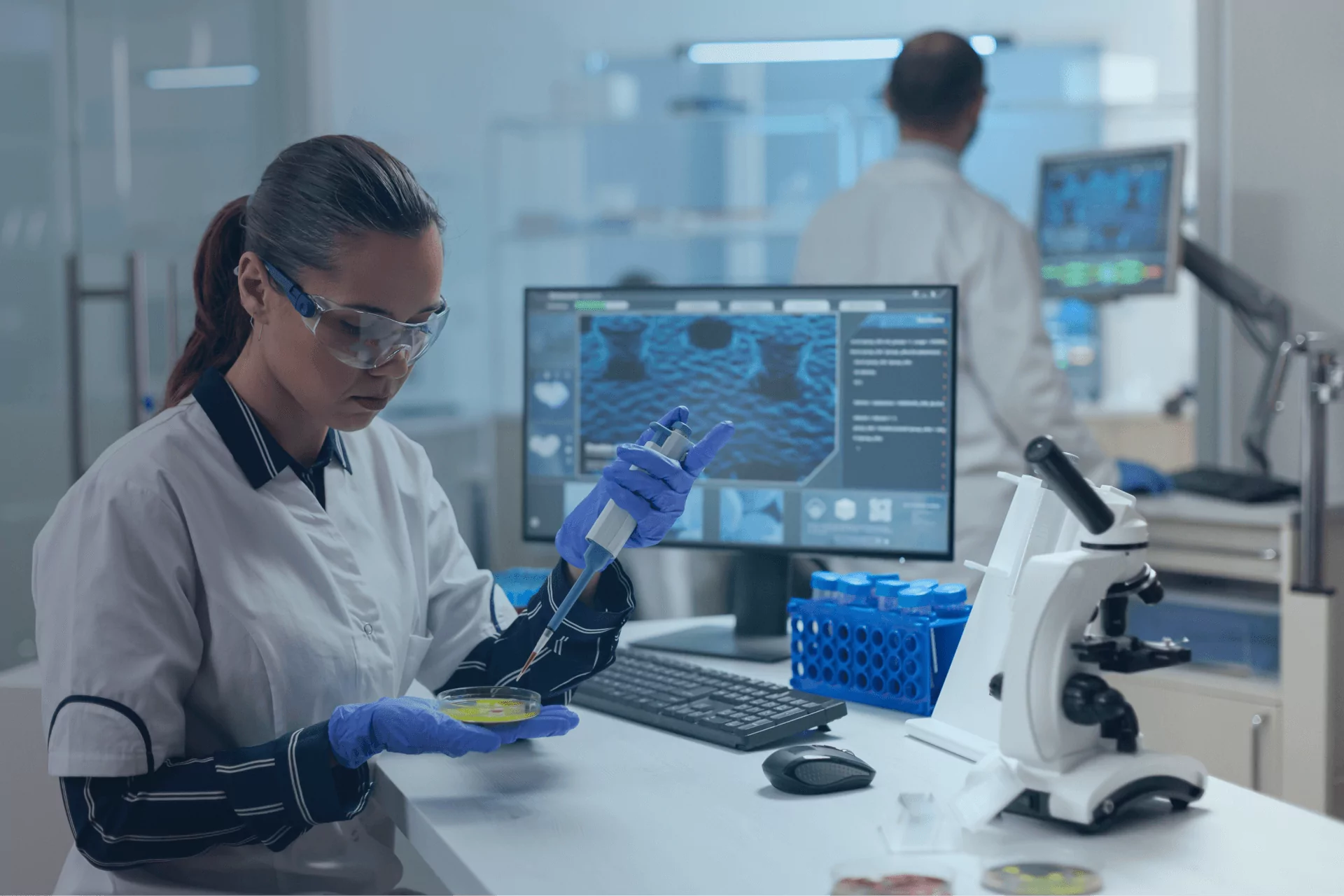Introduction
Prepare to witness the healthcare revolution! Artificial Intelligence (AI) is reshaping the industry with early disease detection, personalized treatment, remote monitoring, efficient drug discovery, and streamlined administration. This AI-powered future promises precision medicine, telehealth, and cost-effective solutions. Get ready for a game-changing transformation in healthcare!

Daniel Hertzberg
Early Disease Detection and Diagnosis

One of the most promising areas where AI is making an impact is in early disease detection and diagnosis. Machine learning algorithms can analyze vast datasets of medical records, imaging scans, and genetic information to identify patterns and anomalies that human physicians might miss. This can lead to earlier and more accurate diagnoses, which is critical for diseases like cancer, where early detection often means the difference between life and death.
For instance, AI-powered algorithms can analyze mammograms to detect breast cancer with high accuracy, potentially reducing false positives and unnecessary biopsies. Similarly, AI can assist in the interpretation of radiological images, such as X-rays and MRIs, to spot abnormalities and diseases like lung cancer or Alzheimer's disease at an earlier stage.
Personalized Treatment Plans
AI's ability to process and interpret vast amounts of patient data allows for the development of highly personalized treatment plans. This approach, known as precision medicine, takes into account an individual's genetics, lifestyle, and medical history to tailor treatments to their unique needs. This not only improves patient outcomes but also reduces the risk of adverse reactions to medications and treatments.
For example, AI can analyze a patient's genetic makeup to determine which cancer treatments are most likely to be effective while minimizing side effects. AI-driven decision support systems can assist physicians in selecting the most appropriate treatments for each patient, leading to more targeted and efficient healthcare.
Remote Patient Monitoring and Telemedicine
The COVID-19 pandemic accelerated the adoption of telemedicine and remote patient monitoring, and AI is playing a crucial role in enhancing these services. AI-powered devices and wearables can continuously monitor a patient's vital signs, detect abnormalities, and alert healthcare providers to potential issues in real-time. This is particularly valuable for managing chronic conditions and post-operative care.
Additionally, chatbots and virtual assistants powered by AI can provide patients with round-the-clock access to medical information and assistance, reducing the burden on healthcare facilities and making healthcare more accessible to individuals in remote or underserved areas.
Drug Discovery and Development
The drug discovery process is notoriously time-consuming and costly, but AI is streamlining this vital aspect of healthcare. AI algorithms can analyze vast chemical databases, predict the effectiveness of potential drug candidates, and even design new molecules with specific therapeutic properties. This not only accelerates drug discovery but also lowers research and development costs.
Furthermore, AI is being used to identify patient populations that are most likely to benefit from specific drugs, increasing the efficiency of clinical trials and reducing the time it takes for new treatments to reach the market. This has the potential to bring life-saving medications to patients more rapidly.
Administrative Efficiency
AI is also improving the administrative aspects of healthcare. By automating tasks like appointment scheduling, insurance claims processing, and billing, AI can reduce administrative overhead, free up healthcare professionals to focus on patient care, and minimize errors.
AI-powered chatbots and virtual assistants can handle routine administrative inquiries from patients, such as appointment requests and insurance questions, improving patient satisfaction and reducing the workload on administrative staff.
Conclusion
The healthcare industry stands on the cusp of a profound transformation, driven by the integration of AI technologies. These advancements promise to enhance the quality and accessibility of healthcare, improve patient outcomes, and streamline the healthcare system's efficiency. However, as AI becomes more deeply ingrained in healthcare, ethical considerations, data privacy, and regulatory challenges must be carefully navigated to ensure that these benefits are realized while safeguarding patient rights and wellbeing.
 |
| Abto Software |
As AI continues to evolve, its role in healthcare will only become more prominent, reshaping the industry in ways we can only begin to imagine. It is an exciting time for both the healthcare sector and the patients it serves, as we witness the limitless potential of artificial intelligence in revolutionizing the way we approach health and well-being.
Comments
Post a Comment